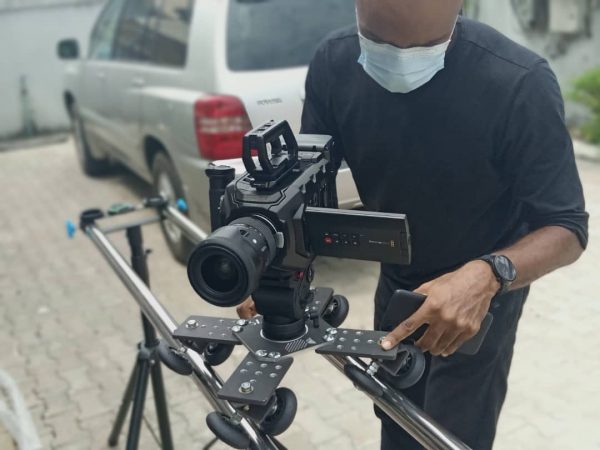Film Anatomie is designing and manufacturing filming equipment to cater for a wide range of clients such as independent filmmakers, content creators, television studios and equipment rental companies.
Read more about Tech
The low tech film equipment maker company is a product inspired by the frustration of Chuks Oteke who used to own a video production studio where he provided visual effects and video editing services back in 2012.
After trying his best to reshape raw video cuts from producers, he still receives complaints from clients who were dissatisfied with the outcome. To the clients, he could fix any shortcomings culminating from using the wrong equipment, but Chuks’ own finding was that the camera operators didn’t have the right tools to get the right shots for a film.
Chuks started experimenting with Do-it-yourself (DIY) and prototype tools until a few folks started offering him money in return for the simple video shooting tools.
Getting into General Electric (GE) Garage Program in 2014 also exposed Chuks to advanced manufacturing techniques such as 3D printing, laser cutting, etc. In the course of his training which spanned across a few years, he learnt more about product design and also interacted with other innovators who were into robotics, aviation systems, STEM education and biomedicine.
As he would have to make do with at least 80% local raw materials to keep the cost of production low, sourcing raw materials were the first major hurdle he had to face.
Sign up to the Connect Nigeria daily newsletter
Funding also was not really forthcoming after his GE Garage Program until the movie Lionheart, produced by Nollywood veteran, Genevieve Nnaji, was about to begin production.
The film Lionheart made headlines in 2018 when it was named Nigeria’s pioneering Netflix Original film. As more investors started paying attention once again to the local creative industry, more attention was also being paid to the tools used in achieving that feat.
Nollywood, the Nigerian movie industry, is the 3rd largest in the world and it produces about 50 movies per week which generate up to $590million in revenue annually. Getting cheap, functional, and tech-enabled equipment across to filmmakers would be the next frontier in filmmaking; and Chuks’ Film Anatomie is ready to produce this equipment with computer-aided designs and 3D printing.
After being contacted by an angel from Platform Capital, offering their products free to get more client engagement and subscriptions was another of Film Anatomie’s strategies deployed to build trust. As Film Anatomie did this, they got more feedback for product improvement from the free trials.
Film Anatomie’s products became partly more appealing to filmmakers due to the price difference. The sliders cost about ₦100,000 (~$220) while readily existing popular sliders with the same features cost between $500 – $1,000.
Manufacturing simple and useful equipment for diverse industry use is at the heart of deploying technology to curtail Africa’s myriad challenges. Film Anatomie has just shown an example of how positively they are affecting the film industry.
Featured Image Source: TechCabal
Got a suggestion? Contact us: [email protected]


